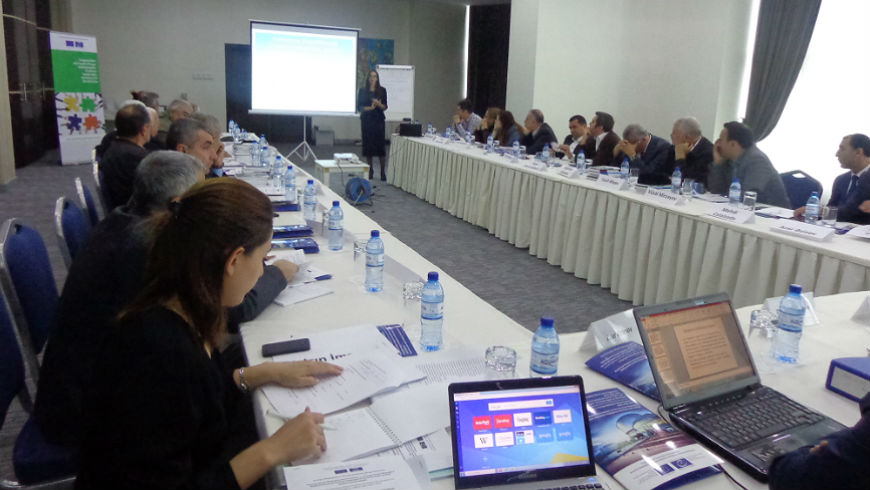The seminar on protection a right to private life was organized on 28-29 September 2017 in Sumgayit city. The participants learned presented four dimensions (private and family life, home and correspondence) under Article 8 of the European Convention on Human Rights and the Court’s approach to their applicability. The case-studies practically showed how to apply a two-stage test used in application of Article 8. In addition, the Council of Europe Programme for Human Rights Education for Legal Professionals (HELP) was presented to the audience.
25 advocates practicing in Sumgayit and nearby regions of Siyazan and Absheron attended the two-day seminar led by the certified trainers of the training of trainers programme who were effectively trained in delivering training for their peers. Participants also received the European Court of Human Rights related publications and materials recently published within the project.
As of today, 695 advocates, 280 judges of first instance and appeal courts and 153 practicing lawyers and human rights defenders have been trained on various European Convention on Human Rights standards as a result of a series of cascade training sessions organised within the project.
The activity was organized in the framework of the Council of Europe and European Union joint project “Application of the European Convention on Human Rights and the case-law of the European Court of Human Rights in Azerbaijan” under the Partnership for Good Governance for Armenia, Azerbaijan, Georgia, Moldova, Ukraine and Belarus.

